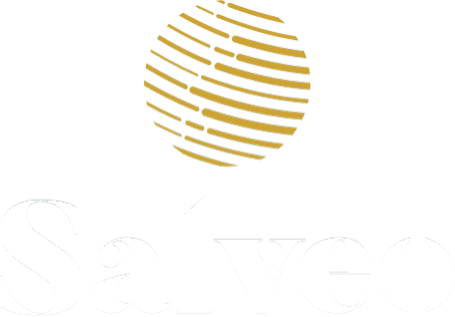Employer of Record in South Korea

At the heart of South Korea’s economic dynamism, the country boasts a GDP reaching 181 billion US dollars in 2022, marking a year-on-year growth of 4.5%. Indeed, foreign direct investments have also surged, totaling 30.45 billion US dollars in 2022, recording a 3.2% increase compared to the previous year. In this nation with distinct legal and administrative frameworks, opting for wage portage in South Korea emerges as a clever solution to streamline the business development process.
Today, discover how we facilitate your hiring of employees through wage portage in South Korea. Our goal is to enable you to fully focus on your business to ensure its success in this dynamic Asian market.
Employer of Record in South Korea: What is it?
Wage portage and Employer of Record (EOR) services are experiencing notable growth in South Korea, with businesses seeking ways to streamline their human resources operations and reduce costs.
An Employer of Record service is a type of outsourcing service where the third-party provider takes full legal responsibility for the workers. This means that the Employer of Record is responsible for all aspects of employment, from recruitment and onboarding to termination. The original employer retains control over the day-to-day management of the workers.
EOR in South Korea: What are the benefits?
Wage portage services in South Korea offer a wide range of advantages, including:
- Reduced human resources costs and improved HR compliance: Employer of Record services take on the administrative and legal responsibilities of employment.
- Increased availability of time and resources: Employer of Record services can free up businesses to focus on their core activities by handling time-consuming HR management tasks.
- Attraction and retention of top talent: Employer of Record services can attract and retain top talent by providing an expanded range of HR services, such as recruitment, training, and performance management.
- Quick and cost-effective local presence: Establishing a local presence in South Korea quickly and at a lower cost than creating and managing one’s own legal structure.
- Market assessment: Employer of Record services can help businesses assess and test the potential of the South Korean market for their project before committing to establishing their own legal structure in the country and reduce their risk.
- Increased client confidence and engagement: A local presence in South Korea can be reassuring for clients and enable closer contact.
Our added value? Simplifying the management of your human resources
Salveo is legally responsible for the employees placed with its clients, but it does not oversee their work. The client company maintains the substantial employment relationship, making all decisions regarding compensation, job content, development, and termination of employment.
Salveo takes care of all administrative and legal aspects of employment, including:
- Payroll processing
- Tax compliance
- Administration of benefits
- Immigration sponsorship
- Employment contracts
- HR policies and procedures
- Resolution of disputes with employees
Salveo’s services can help businesses in South Korea:
- Reduce HR costs
- Improve HR compliance
- Save time and resources
- Attract and retain top talent
If you are looking for a way to streamline your HR operations and reduce costs, outsourcing or Employer of Record services can be a good option for your business in South Korea to maintain compliance with South Korean labor laws.

The key points for hiring an employee in South Korea
Types of employment contracts in South Korea
South Korea offers two main types of employment contracts:
Types of contract | Probation period | Termination notice period | Severance |
Fixed-term contract | – 3 months (standard) – 6 months (maximum) | 30 days |
After 1 year of employment: 30 days per year of service |
Open-ended contract |
Probation Period
The probation period in South Korea is flexible, and there is no set minimum duration. While a three-month period is typical, it has the potential to be extended.
Working hours and overtime in South Korea
South Korean standard working hours restrict work hours to 8 hours per day or 40 hours per week. Employees are not allowed to work more than 52 hours per week, including overtime hours, with a maximum of 12 hours of overtime permitted by law each week.
If an employee is required to work beyond these standard hours, the company is obligated to provide overtime compensation under legal provisions:
Overtime Work Hours | Overtime compensation |
Up to 8 hours per week | 150% of the usual salary rate |
More than 8 hours per week | 200% of the usual salary rate |
Night work (between 10:00 p.m. and 6:00 a.m.) | – 50% additional pay for work of eight hours or less – 100% additional pay for work exceeding eight hours |
Holiday work (public holidays) | – 50% additional pay for work of eight hours or less – 100% additional pay for work exceeding eight hours |
Annual paid leave
In the table below, you can find the respective days of leave granted:
Condition | Description | |
Annual Leave Entitlement | Companies must provide at least 15 paid leave days per year. | |
First-Year Entitlement | Employees with 80% attendance in the first year can use 11 days’ annual leave. For those with less attendance, leave days are based on monthly work. | |
Leave Increase Over Time | Leave days increase every two years, reaching a maximum of 25 days. | |
Unused Leave | Unused annual leave does not roll over to the next year and expires. Employers must pay wages for unused leave. | |
Notice for Leave Utilization | If the employer provides written notice to use up remaining leave by year-end, they are exempt from compensation if the employee does not comply. | |
Employees are entitled to annual leave by South Korea’s labor laws. However, both employers and employees can mutually change the allocated number of paid annual leave days through internal discussions within the company, allowing for flexibility.
National Holidays
In addition to public holidays, South Korean employees enjoy a mandatory paid holiday on May 1st, known as Labor Day. While employers don’t need to designate other public holidays as paid, it is a common practice to do so.
The following table indicates the South Korean Public holidays and their dates for 2024.
Holiday | Date |
New Year’s Day | 1st January |
Seollal Holiday* | From 9th to 12th February |
Independence Movement Day | 1st March |
Children’s Day | 5th May |
Buddha’s Birthday * | 15th May |
Memorial Day | 6th June |
Liberation Day | 15th August |
Chuseok Holiday* | From 15th Sep. to 18th Oct |
National Foundation Day | 3 October |
Hangeul Proclamation Day | 9 October |
Christmas Day | 25 December |
*According to the lunar calendar
- Minimum wage
The current nationwide minimum wage is set at a rate of 9,620 won/hour. However, the Minimum Wage Commission announced an increase of 2.5% raise in the minimum hourly wage to 9,860 won ($7.80) for 2024.
Termination and severances
Ending employment in South Korea is a reasonably challenging process. Employers in South Korea are obligated to furnish employees with a minimum 30-day notice before termination. Alternatively, employers have the option to provide compensation equivalent to 30 days’ salary instead of the notice period.
While individual employment contracts may stipulate longer notice periods, in exceptional cases, an employee might be entitled to as much as 12 months’ notice. Full-time employees meeting certain criteria may be eligible for severance pay equal to one month’s salary for each year of service, provided they have at least one year of company service, working more than 15 hours per week or more than 60 hours per month. Severance pays must be given within two weeks of the employee’s termination.
In cases of proven unfair dismissal, reinstatement is often pursued; if not feasible, compensation pay of up to six months may be awarded.
Receive your specialist study
+33 (0)1 84 79 17 50
09h - 18h UTC+1
22 Rue Georges Picquart75017 Paris



